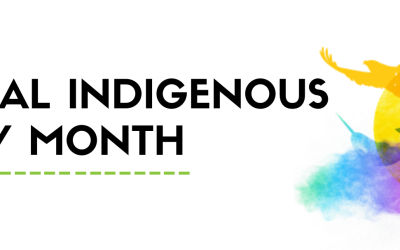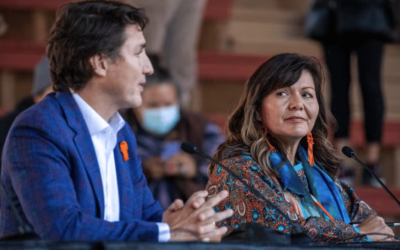Frontier Centre: You mentioned in your presentation that a problem is that First Nations are viewed as a social problem, not an economic one. How can First Nations become part of the wider economy?
Manny Jules: Well, fundamentally we have to have the institutional basis to be able to be a fully functional part of the Canadian economy and therefore the global economy. I’m a big believer that we need national institutions to help facilitate our entry into the economy. You know one of the questions at this conference was Bill Gates. Bill Gates is really a product of the institutional development that’s happened over the last few hundred years, a couple of hundred years in the United States. The educational system, the free market system, you know, Gates benefited from all that. Whereas First Nations, we’ve had the Indian Act. The Indian Act is frozen in the 1870’s. So we need to be able to have modern institutions to help us get involved in innovation and the free market system.
FC: You mentioned a new fiscal framework for First Nations. How can transfers for First Nations be reformed to better serve their communities?
MJ: One of the fundamental issues when you deal with the fiscal issues, front and centre, is accountability. Governments have to be accountable, individuals have to be accountable and what I was proposing is that First Nations be part of the transfers as it relates to royalties so that there’s an incentive for them to see resource extraction take place as a government. Then they can use those revenues to help educate their populace so that we can have not only a labour force – not just with a pick axe and shovel – but somebody that can actually work in a multitude of areas, like welding. All of those require money to do and with royalties, you would be able to raise a means of facilitating that.
FC: What kind of governance reforms do you think are necessary to advance First Nations?
MJ: I think that we absolutely need modern institutions. Like right now when I started as an advisor to the Auditor General for about six years, a lot of the institutions that service First Nations people are bloated with a lot of bureaucrats. In order for a dollar to get to the individual First Nation citizen, it has to go through like three or four different layers of bureaucracy to get there. So, I’m not advocating huge bureaucracies. They are a necessary animal, but at the same time we need institutions to help facilitate really a new philosophical approach to deal with our issues which isn’t through the social policy prism which is ‘let’s get more money, let’s get more programs’. We need to get our own resources and develop our own institutions. We need First Nation institutions to do what is necessary to be a functioning part of the economy.
FC: What is the First Nation Property Ownership Act and how can it help First Nation communities?
MJ: In a nutshell, it will mean the transfer of the title from Her Majesty under the Indian Act. A reserve is defined quite simply as a tract of land whose title is invested in Her Majesty, set aside for the use and benefit of the Band of Indians. Individual band members can have a certificate of possession but that’s just what it means, you have a right of possession. You don’t own it. The federal government owns it. What I’m proposing, and what the First Nations who are supporting this, are proposing is that the title to those lands be transferred to those First Nations and they in turn can transfer fee simple ownership to individual members of the community and others.
FC: How will that help the members?
MJ: Well it will empower them in a way that hasn’t happened yet. All of the existing institutions and legislation really empower the Band Council and empowers the government structure. There has been no focus on empowering the individual. You can’t have an economy based on just government. You have to have the economic engine as individuals. That’s where innovation happens. So it allows an individual to be able to build their own home, it will allow an individual to be bonded, it will allow an individual to pass on wealth because they can’t do that yet.There are only three classes of individuals in Canada that cannot own property; mentally handicapped individuals, minor children and First Nations living on a reserve.
FC: Why do you think so many First Nation leaders oppose or say they’re opposed publicly to the First Nation Property Ownership Act?
MJ: For them, they equate this with what happened in the United States through the Dawes Act. But this isn’t the Dawes Act. I’ve studied history. I’ve looked at what happened in the United States. The underlying title, should I say the title to the lands, will always remain vested in the First Nations community. So this is a voluntary or optional piece of legislation that is being proposed. Nobody has to implement it if they don’t want to. It’s really a philosophical opposition to try to deal with our issues. But at the same time they have to recognize fundamentally that this is First Nation led. We’re not forcing anybody to do this. So ultimately I think that the opposition is unfounded.
FC: Lastly, how do you feel about Idle No More. Do you think it could be a positive force in Canadian politics?
MJ: Well, I’ve lived through lots of different movements. My dad told me about the movement after the Second World War. He told me firstly about the movements that happened as a result of the so-called potlatch laws that outlawed basically our cultural events. He told me about what happened after the Second World War when our veterans came and wanted to become not second class citizens when they came home but treated like their partners in war. They pushed for us to be citizens of Canada. That allowed us to have a vote in the Canadian elections. I was part of a movement in the 1970’s that saw the rejection of the Indian Act and governmental funds. Then I witnessed the constitutional debates in the 1980s and then the rejection of the Charlottetown Accord in the Manitoba legislative assembly. So all of these movements have got their roots in the fact that First Nations feel that we haven’t been treated fairly or justly within Canada, and as long as that is the feeling, there will be discontent amongst First Nations.
Also, change happens at a glacial pace. That’s a result of the fact that you are dealing with complex issues and the fact that there has to be process. You know, you can’t just say, ‘let’s change the world’. You have to have a process to do that and that takes time. So it is borne out of frustration at how slowly the issues take to be resolved. But I’ve seen in my lifetime lots of changes and over the next lifetime, the next generation there is going to see significantly more changes. What we have to do is ensure that we are laying the seeds not of discontent but of innovation in our youth so that we can become better not only as First Nation individuals but within the Canadian fabric.
FC: Thank you very much.
View as PDF (2 Pages)



